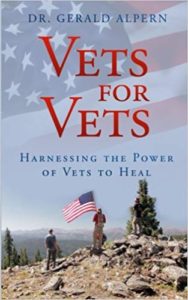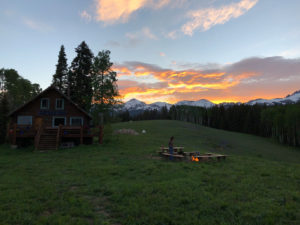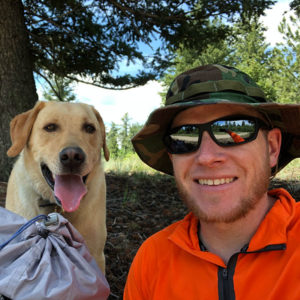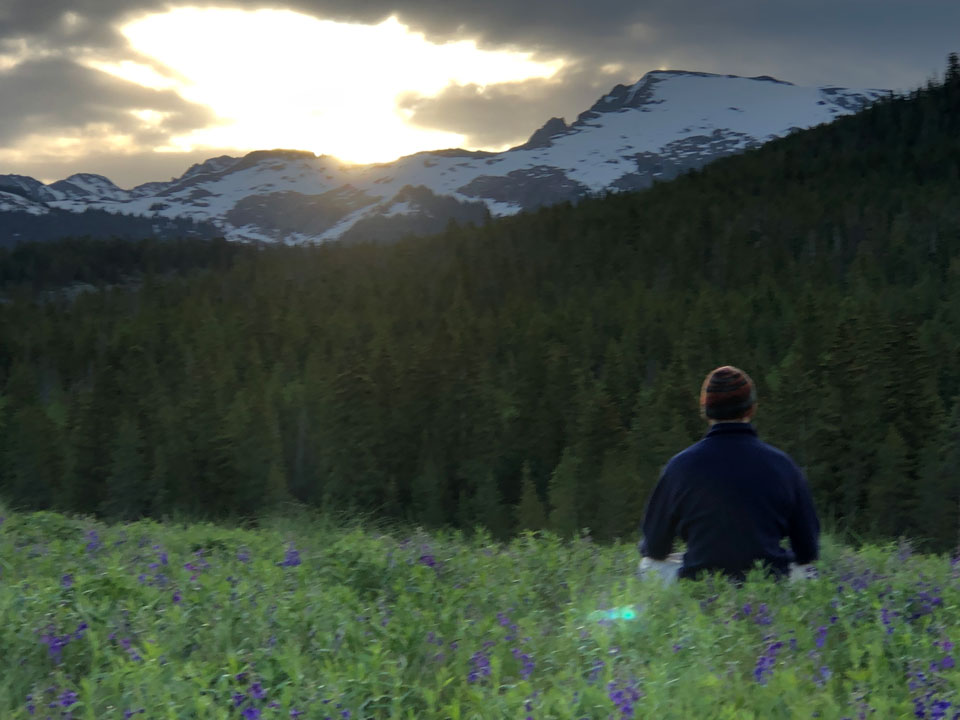Words by HFV alumnus Adam Stump
After attending a Huts For Vets trip in late June and early July, I left coming away wondering why years of therapy failed time and time again.
When I returned from deployment in 2011, I went to therapy after having a breakdown. In 2013, it was the same. Both times, I came back from deployment with a heavy heart and mind.
Over the years, I had a roller coaster of ups and downs. When I heard about a death or suicide, I plunged into depression. The latest episode was in 2018, when I learned the facts behind someone I served with who died by suicide.
Each time I sought professional advice, I tried to follow the counselor’s advice. I attended appointments regularly. I listened to and followed instructions. But each time, I came away no better off. I could not figure out why because I genuinely wanted to get better for my family and myself.
 Following the Huts For Vets trip, Founder and Executive Director Paul Anderson sent me a copy of Dr. Gerald Alpern’s book, Vets For Vets: Harnessing the Power of Vets to Heal. I was in the midst of reading The Nature Fix by Florence Williams, learning about the power of nature in making us happier. Alpern’s book went to the on-deck circle.
Following the Huts For Vets trip, Founder and Executive Director Paul Anderson sent me a copy of Dr. Gerald Alpern’s book, Vets For Vets: Harnessing the Power of Vets to Heal. I was in the midst of reading The Nature Fix by Florence Williams, learning about the power of nature in making us happier. Alpern’s book went to the on-deck circle.
Once I started Vets For Vets, my years of searching for answers ended. The words jumped off the page. The days spent with our group all made sense.
Huts For Vets works for certain Veterans because we can harness the greatest healing power of all: our fellow Veterans. This is one of the key themes of Alpern’s book.
“There are a multitude of benefits for vets for spending time with others who not only share their horrific experiences but, more importantly, can also identify with their having evolved into people so alien to their pre-military selves. Vets share a culture, a set of values and even a language that they understand to be completely foreign and absolutely unlearnable to civilians.”
As I read that passage, I understood the shortcomings of previous failed attempts working with civilian mental health providers. While they tried, they couldn’t succeed because I didn’t trust them. My lack of trust wasn’t their fault. My 20 years of service created a culture and mindset where I needed the help of fellow Veterans. Part of this became clear as I read further.
“They knew their fellow vets not only would not judge them, but also would, in fact, applaud them for telling the kinds of truths they themselves were keeping inside. The telling of such long-buried stories frequently paved the way for others in the group to give voice to their own sorrowful fate.”
As I learned on our trip, I learned I wasn’t alone in the difficult struggle with post-traumatic stress and depression. Although all of our experiences differed, sharing helped us realize we all were all on the trip because we all strived to become better versions of ourselves.

Opening up was difficult. We’re trained to keep moving forward, no matter the obstacle. But I owed it to my family. My wife even told me before the trip I needed to do so. When I did, an amazing thing happened. One of the other Veterans opened up about an incredibly difficult time as well. When I heard him open up, it validated sharing helped both of us, something Alpern noted in his book.
“Veterans need absolution. Veterans need to believe that the horrible things they have done are not reflections of their true essences and values but rather the results of being in a war situation that fosters a bestial way of thinking.”
We were subject to incredible difficulties. Even after our service ended, we continued to deal with deep wounds that persisted.
This is why we need programs like Huts For Vets. Some Veterans may actually want the anonymity of talking to a mental health provider who doesn’t understand the military. Some may need other outdoor programs. A Veteran I met recently found his healing through equine therapy, taking care of horses. For each of us, there is a different answer.

For dozens of Veterans, the answer for what works is clear: Huts For Vets. Joining together in the wilderness, confronting our challenges, and doing it with fellow Veterans can put us on the path to healing. The work by Dr. Gerald Alpern, Paul Anderson, a host of other volunteers and partners who sponsor the program is what we need.
 Adam Stump served in the Air Force from 1993-2014, retiring as a senior master sergeant. He deployed twice to Afghanistan, a year with detention operations and six months with special operations, along with several trips to Iraq, Afghanistan, and Pakistan with the Chairman and Vice-Chairman of the Joint Chiefs of Staff. Adam is an avid mountain biker and hiker. He’s shown with one of his favorite hiking buddies, Bailey.
Adam Stump served in the Air Force from 1993-2014, retiring as a senior master sergeant. He deployed twice to Afghanistan, a year with detention operations and six months with special operations, along with several trips to Iraq, Afghanistan, and Pakistan with the Chairman and Vice-Chairman of the Joint Chiefs of Staff. Adam is an avid mountain biker and hiker. He’s shown with one of his favorite hiking buddies, Bailey.

